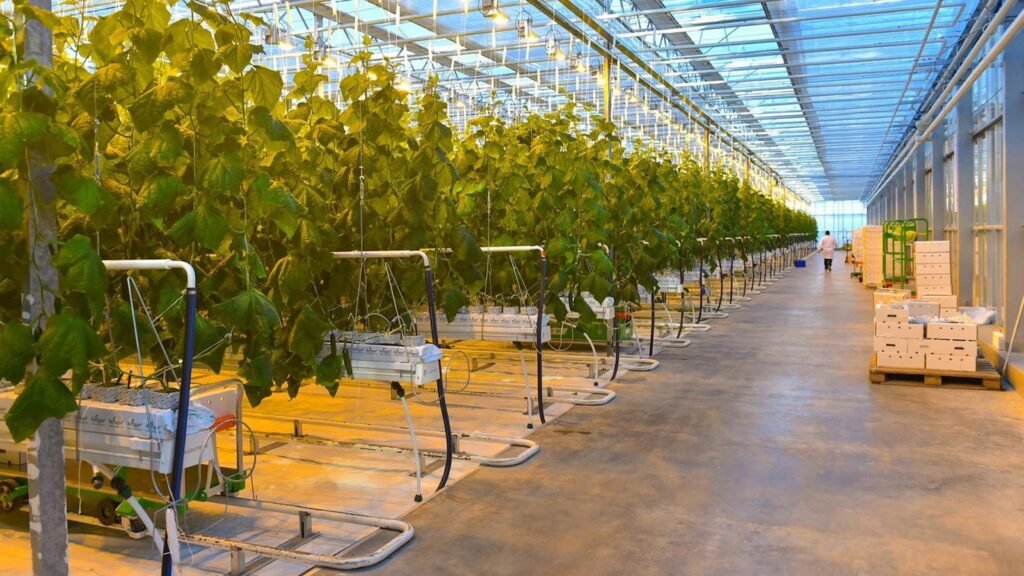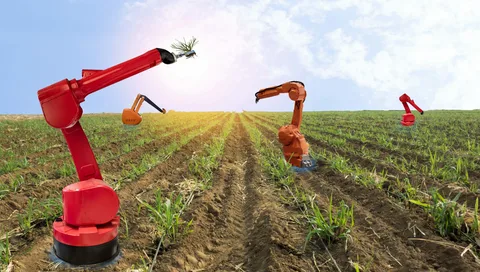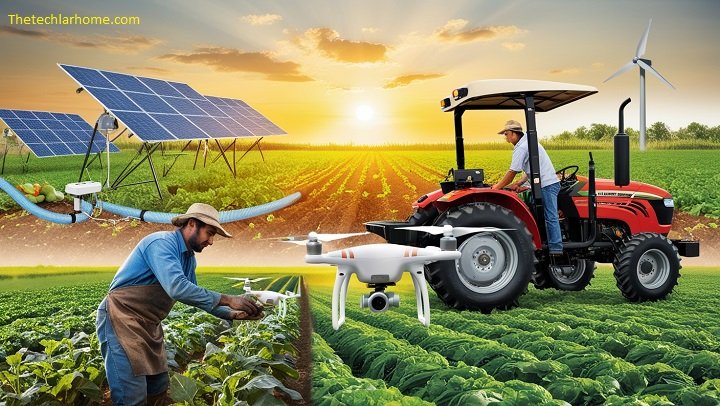Agriculture horticulture is one of the most seasoned callings and the establishment upon which our civilizations have been built. From the minute people started to plant seeds and develop crops, they set out on a travel that would alter the course of history. The capacity to deliver nourishment on a expansive scale not as it were upheld the development of cities and domains but too started advancements in innovation, exchange, and culture. Whereas horticulture may appear like a removed concept to numerous in today’s fast-paced, urbanized world, it remains completely fundamental for our survival. Why is fashion so famous:
The Advancement of Agriculture

In the starting, farming was exceptionally straightforward. Individuals developed crops in little patches of arrive and depended intensely on the seasons and normal assets. Early ranchers would plant crops like wheat, grain, and rice, depending on the locale they lived in. Over time, cultivating methods made strides. This development made a difference boost nourishment generation, which implied populaces might develop, and social orders may expand.
The development of devices like the plow stamped another noteworthy turning point in farming. It permitted ranchers to till the soil more proficiently, driving to superior yields and lessening the labor required. As innovation progressed, so did farming, with tractors, fertilizers, and moved forward seeds revolutionizing the way nourishment is produced.
Agriculture and the Economy
Agriculture it’s simple to disregard that the advanced economy has its roots in agribusiness. Some time recently the mechanical insurgency, most individuals depended on cultivating for their jobs. Indeed nowadays, in numerous creating nations, farming remains a essential source of work and wage. In nations like India and China, the lion’s share of the populace still works in farming, creating nourishment, cotton, and other products fundamental to both neighborhood and worldwide markets.
In more industrialized countries, farming has gotten to be more specialized. Ranchers are presently able to develop particular crops or raise animals on a much bigger scale much obliged to advanced innovation. The presentation of high-yield seeds, chemical fertilizers, and pesticides has essentially expanded the sum of nourishment created per section of land. This has made it conceivable to nourish the developing world populace, which is anticipated to reach about 10 billion by 2050.
However, the industrialization of agribusiness has come with its claim set of challenges. Large-scale cultivating frequently leads to natural concerns, counting soil debasement, misfortune of biodiversity, and water contamination from fertilizers and pesticides. There is an progressing wrangle about around how to adjust the require for nourishment generation with the require to ensure the environment.
The Natural Impact
Agriculture is both a cause and a casualty of natural alter. On the one hand, it is dependable for a huge parcel of worldwide nursery gas emanations, primarily through deforestation, methane generation from animals, and the utilize of nitrogen-based fertilizers. On the other hand, farming is moreover influenced by climate alter, with extraordinary climate occasions like dry seasons, surges, and unusual developing seasons getting to be more frequent.
Farmers are on the front lines of this fight. They require to discover ways to adjust to changing conditions whereas moreover decreasing their affect on the environment. Economical cultivating hones, such as edit revolution. Natural cultivating, and the utilize of renewable vitality sources like sun based or wind control, are picking up notoriety as ways to diminish agriculture’s natural footprint.
One positive slant is the rise of exactness farming, which employments innovation to screen and oversee crops with more prominent precision. Rambles, fawning symbolism, and GPS-guided gear permit ranchers to apply water, fertilizers, and pesticides as it were where they are required, diminishing squander and making strides efficiency.
The Part of Innovation in Advanced Agriculture
Technology is quickly changing agribusiness, making it more proficient and profitable than ever some time recently. Nowadays, ranchers can depend on savvy cultivating devices that give real-time information approximately their areas. Sensors set in the soil can degree dampness levels. Whereas rambles prepared with cameras can study crops from the discuss, recognizing ranges that require attention.
Even more amazing is the advancement of hereditarily adjusted living beings (GMOs), which have ended up a theme of warmed wrangle about. On the other hand, there are concerns approximately the long-term impacts of GMOs on both human wellbeing and the environment.
Despite these concerns, the benefits of innovation in horticulture are evident. Agriculturists can presently develop more nourishment on less arrive. Which is significant as the worldwide populace proceeds to rise. This increment in effectiveness makes a difference keep nourishment costs moo and guarantees that more individuals around the world have get to to the nourishment they need.
Agriculture and Nourishment Security
One of the most critical viewpoints of agribusiness is its part in guaranteeing nourishment security. In numerous parts of the world, get to to adequate, secure, and nutritious nourishment is still a challenge.
To address this, specialists are working on moving forward rural hones to deliver more nourishment in a economical way. Developments like vertical cultivating, hydroponics, and lab-grown meat are fair a few cases of how innovation might offer assistance illuminate the worldwide nourishment emergency. These strategies utilize less arrive and water than conventional cultivating and may offer assistance nourish millions of individuals in the future.
But it’s not fair approximately creating more nourishment. Evenhanded conveyance is moreover key. Indeed in nations where there is bounty of nourishment. Numerous individuals battle to get to it due to financial disparity, need of framework, or political insecurity. Tending to these issues requires a all encompassing approach, including governments, businesses, and communities working together.
The Human Component in Agriculture
Agriculture at its heart, farming is around individuals. Whereas innovation and advancement have revolutionized cultivating. It’s still the ranchers, farmers, and laborers who put in the difficult work to bring nourishment from the areas to our tables. These people frequently confront extreme conditions, working long hours for moo compensation, especially in less-developed countries.
The future of agribusiness depends on the individuals who work in it. It is basic to back small-scale agriculturists, particularly in creating districts. With get to to way better devices, instruction, and assets. Ladies play a vital part in horticulture in numerous parts of the world, and enabling them can lead to critical enhancements in nourishment generation and financial growth.
The Future of Agriculture

As we see to the future, it’s clear that horticulture will require to proceed advancing to meet the challenges ahead. Nourishing a developing worldwide populace whereas securing the environment is no little assignment. But it is achievable with the right combination of innovation, advancement, and maintainable practices.
We must keep in mind that farming is more than fair a way to deliver food—it’s the spine of our society. Without it, there would be no cities, no economies, and no advance. It’s a update that, indeed in our advanced world.
Conclusion
In agribusiness is not fair almost developing crops; it’s almost bolstering countries. Supporting economies, and guaranteeing a maintainable future for eras to come. As we confront the challenges of the 21st century. We must discover ways to improve, adjust, and regard the common world that maintains us.
The soil underneath our feet has continuously been, and will continuously be, the establishment of life.




